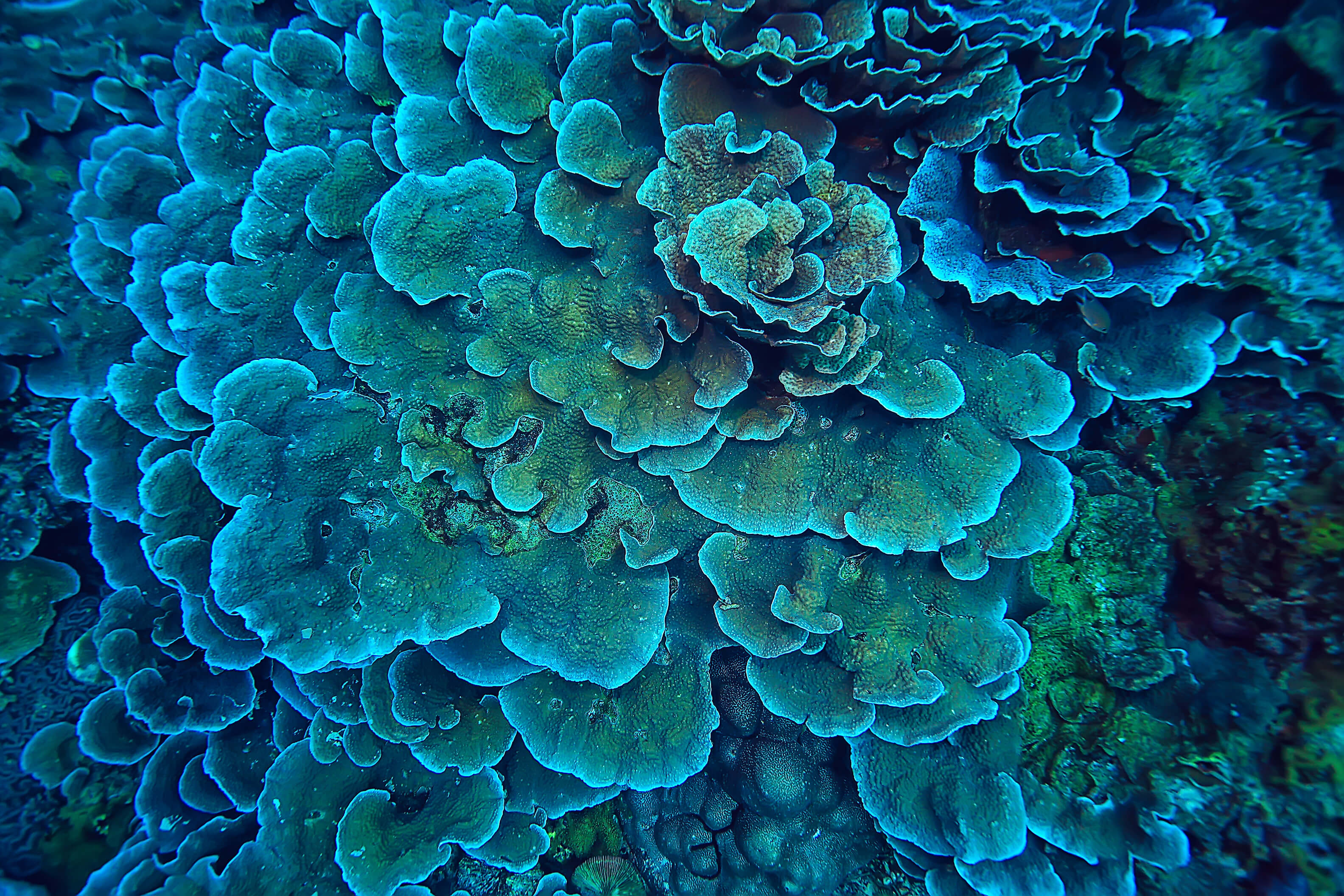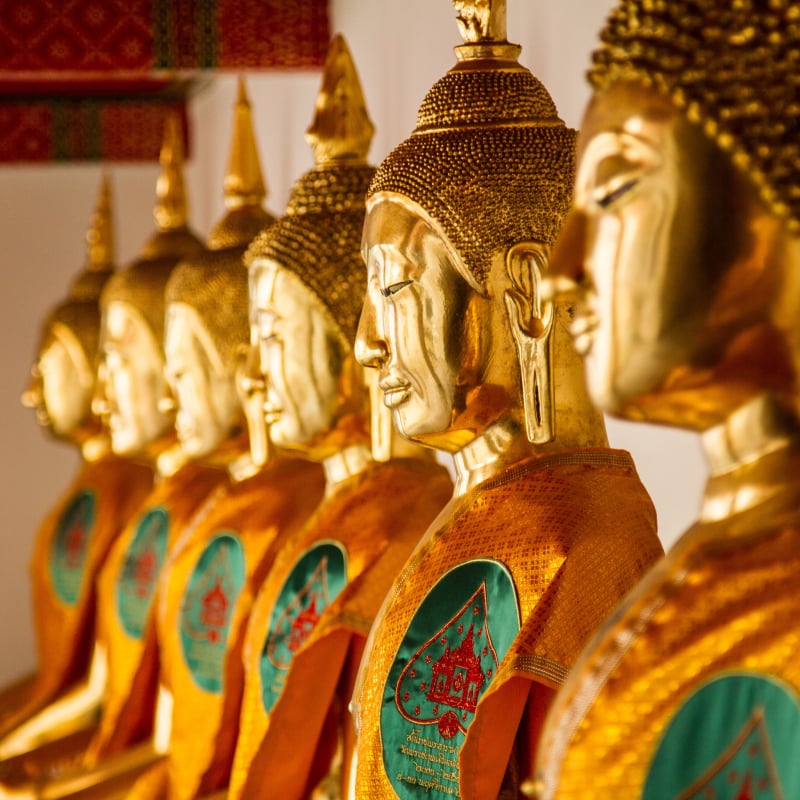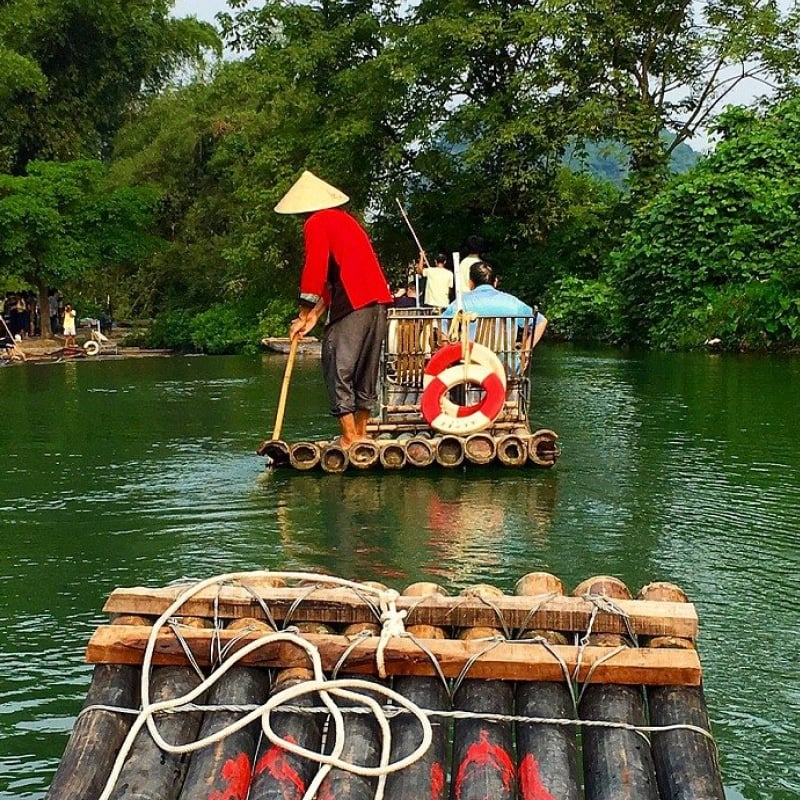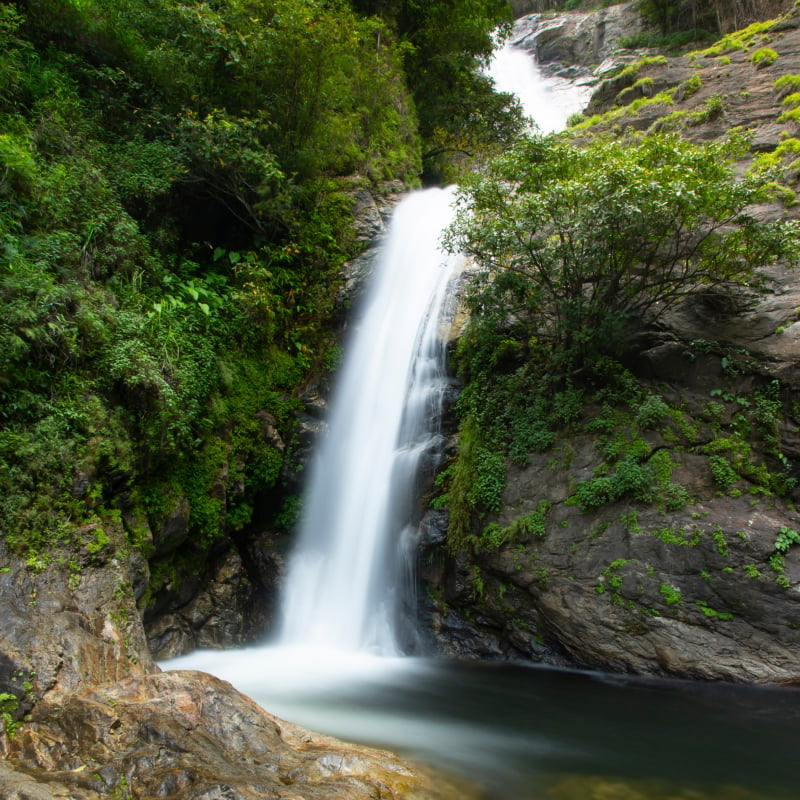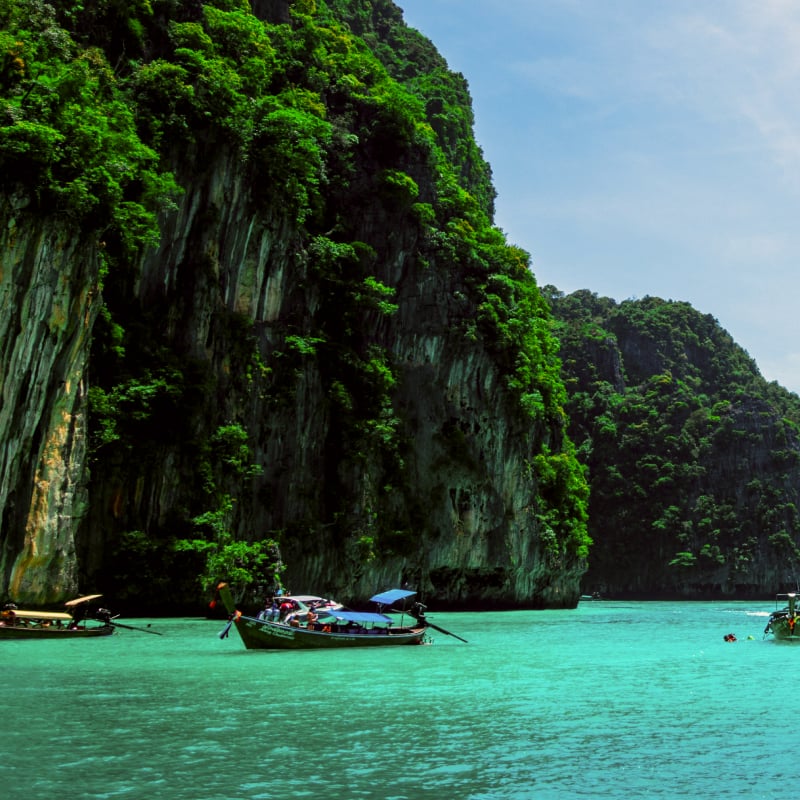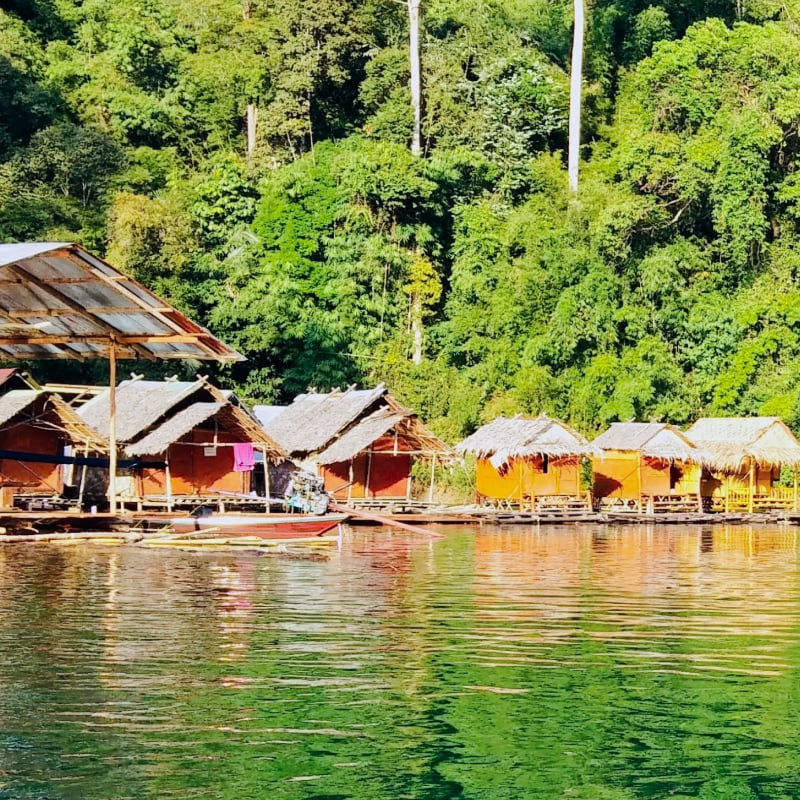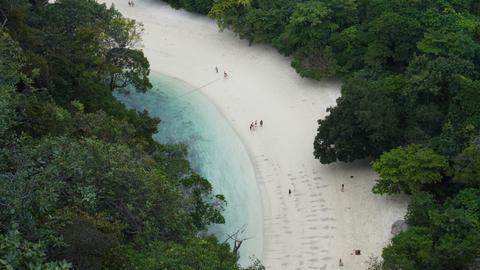
Coastal Conservation Expedition in Thailand
Assist in the conservation of endangered sea turtles and dugongs on this coastal conservation expedition.
Program information
Join us in Ao Nang, Thailand where you’ll work to protect endangered sea turtles and dugongs while living in one of the most naturally beautiful regions in the world. Our goal is to develop science-based strategies to ensure these amazing creatures thrive in their natural environments. You’ll conduct wildlife and ecosystem surveys, take part in snorkel surveys and coastal restoration projects.
Program overview
Its natural beauty and unique terrestrial and marine life are two of the main reasons thousands of tourists visit Thailand each year.
However, Thailand’s natural environment, specifically its coastal regions, beaches and islands are at risk, directly due to human actions. Plastic pollution threatens many important wildlife species, including sea turtles, dugongs and whales. Unsustainable coastal development damages beach ecosystems. Destructive fishing practices’ and climate change threaten coral reefs. Deforestation for agriculture removes key habitats, and poaching puts many critically endangered species at risk.
On this coastal conservation expedition, you’ll take part in activities to preserve and restore the local environment. Based at our research station in Ban Chong Pli, Ao Nang, you’ll have the opportunity to explore diverse ecosystems teeming with life. Keep an eye out for species like turtles, dugongs, whale sharks, and an array of fascinating creatures such as hornbills, sunbirds, kingfishers, gibbons, monitor lizards and tropical fish.
You’ll gather data and conduct wildlife surveys to understand population dynamics, and get hands-on with geospatial mapping using drones to track climate change impacts. Join in restoration efforts across forests, mangroves, seagrasses and corals. All activities support UN SDGs, including Goal 14: Life below Water and Goal 15: Life on Land. This is your chance to make a real impact and be part of positive change!
This program is ideal if you’re all about marine conservation but not into diving. Activities include carrying out surveys while snorkelling and analysing data. You can also assist with coral restoration when the tide is low. If you’re keen on joining underwater activities, you can take scuba-diving courses at an extra cost and become a certified diver.
During your free time check out iconic spots like Railay Beach or Koh Lanta, and try your hand at scuba-diving or rock climbing, all conveniently close by. Krabi offers stunning beaches, cliffs and forests for adventures like kayaking and island hopping. You can also visit national parks like Khao Phanom Bencha and Than Bok Khorani for hiking and wildlife watching.
Highlights

Contribute to the conservation and restoration of the Andaman coastal ecosystems through training, monitoring and research.

Live in Krabi Province on the southwestern coast of Thailand, an area known for its natural beauty, limestone cliffs and stunning beaches.
Activities
Some of the example typical activities you could participate in on this program.

Survey turtle, dugong, bird and monkey habitats to collect data on population changes and how ecosystems work.

Learn how to identify key species in Krabi’s land-to-sea ecosystems. Contribute to data collection for species inventory.

Join surveys and assessments to document ecosystem health indicators in rainforest, mangrove, seagrass and coral reefs.

Help map coastal areas with drones, photographing seagrass meadows and habitats for georeferencing. Assess seasonal changes due to climate change.

Learn restoration ecology basics and assist in forest, mangrove, seagrass or coral restoration, including baseline assessments and nursery work.

Learn about permaculture and sustainable living. Help develop a local permaculture centre and learn about waste management and recycling.

Engage in ecosystem restoration and training, support community forest management, run awareness campaigns and contribute to sustainable practices.
Skills
- Data collection
- Data entry
- Marine conservation
- Population ecology
- Species identification
- Survey research
Partners
Some of the partners we work with on base.
Program details
Dates and prices
Itinerary
8:00

8:00
9:00

9:00
12:00

12:00
13:00

13:00
19:00

19:00
19:30

19:30
20:30

20:30
What’s included?
General | |
|---|---|
| Food | |
| Safe and basic accommodation (usually shared) | |
| Airport pick up (unless stated) | |
| All project equipment | |
| 24-hour in-country support from local staff | |
| 24-hour emergency desk | |
| GVI Experiences |
Activities | |
|---|---|
| Sustainable project work | |
| Data collection and research |
Pre-program training | |
|---|---|
| Pre-departure webinar | |
| Pre-departure training (online) | |
| University of Richmond endorsed specialisation course |
Welcome training | |
|---|---|
| GVI welcome presentation | |
| Health & safety | |
| Local culture & environment | |
| UN SDGs | |
| Impact & ethics | |
| Child protection |
Certificates | |
|---|---|
| Program certificate | |
| University certificate – specialisation (University of Richmond) |
Not included |
|---|
| Flights |
| International and domestic airport taxes |
| Medical and travel insurance |
| Visa costs |
| Police or background check |
| Personal items and toiletries |
| Additional drinks and gratuities |
Life On Base
Base Photos
Located in the town of Ban Chong Pli, within the picturesque Krabi Province, our research station offers easy access to the vibrant town of Ao Nang, just a short 15-minute drive away.
Krabi Province, located on Thailand’s southwest coast, offers a wealth of natural beauty with its stunning beaches, limestone cliffs and lush forests. You can enjoy activities like rock climbing and kayaking, or go for a hike in nearby national parks such as Khao Phanom Bencha and Than Bok Khorani to spot wildlife and take in the scenery. Immerse yourself in the local culture with visits to temples, shopping and nightlife.
As a volunteer in Thailand, you’ll have the chance to see incredible species like turtles, dugongs, whale sharks, gibbons, woodpeckers and hornbills. Don’t miss out on Krabi’s attractions, including the Emerald Pond and Tiger Temple Cave. And make sure to explore the Andaman islands for their marine life.

Accommodation
You’ll stay in cosy bungalows overlooking stunning caves and mountains. Each spot boasts a private bathroom and a balcony with direct views of th...

Accommodation upgrades
An accommodation upgrade is available at an extra charge, depending on availability.
...
Transportation
When you arrive at Krabi International Airport (KBV), we’ll pick you up and take you to your accommodation. Throughout your stay, we’...

Communication
Stay connected during your stay with Wi-Fi available at your accommodation. Need mobile data on the go? Upon arrival at the airport or in various...

Meals
Breakfast and lunch are provided at your accommodation from Monday to Friday. Breakfast typically features a combination of eggs, toast, fruits a...

Climate
Thailand has a tropical climate, perfect for enjoying its stunning beaches. There are two distinct seasons: dry and wet. Dry season (Nov-Apr): Lo...

Culturally appropriate dress and behaviour
When on project and in the local town participants will be expected to wear modest clothing and behave in ways in keeping with Thai
GVI experiences included in your program, at no extra cost.
We want you to make the most of the chance to live in – and contribute towards – the most diverse and unique wildernesses and communities on earth. Introducing GVI Experiences – immersive adventure, cultural and wellness activities exclusive to GVI that have been specially designed in collaboration with our local partners to support and stimulate sustainable economic development.
Enhance your impact. Expand your adventure. Explore your world.
Free time
Joining a GVI program not only allows you to collaborate with communities or work toward preserving unique ecosystems – but it also offers plenty of opportunities to explore the surrounding area or travel further to see what other parts of the region have to offer over weekends.
Field staff are a great source of advice and have helped us put together the following information on local travel options. You can choose to travel before or after your experience with GVI (subject to immigration restrictions), solidifying the lifetime friendships you’ve established on the program. Please note that the below options are not included in the program fee, and would be up to you to arrange at your own expense.
Weekend trips

Island hopping
The Similan and Surin Islands are both protected Marine National Pa...

Khao Lak
This is a very popular tourist spot. It’s filled with seemingly endless beaches, so many dining options you will be spoilt for choice, and hundreds of spas offering massages and...

Khao Sok National Park
Said to be more diverse than the Amazon, this 740 square metre rainforest reserve is home to elephants, deer, monkeys, lizards, birds, and the Rafflesia, a giant flowering plant...
Further travels

Phuket Island and city
Phuket is a tourism hotspot – as popular for its spectacular beaches, diving and

Beaches
Thailand boasts some of the top beach destinations in the world, with Railay beach being one of the most popular. A peninsula on the Andaman coast, it consists of three separate...

Phang Nga Bay
Explore the warm turquoise waters and limestone cliffs of Phang Nga by speedboat or sea kayak, stopping off at James Bond Island – made famous by...

Mu Koh Chang National Park
This protected marine park covers a huge area, including over 50 islands. Visit the jungle island of Koh Chang, where you can snorkel or scuba-dive off the coast and experience ...

Koh Tao Island
Also known as “‘Turtle Island”’ this is another excellent destination for snorkelling and scuba-diving, or simply relaxing on the beach. The visi...

Nan Province
Explore the many natural sites of Nan, bordering Laos – like Doi Phu Kha National Park and Si Nan National Park. It is the perfect area to experience the dense natural forests t...

Khao Yai National Park
Explore the picturesque waterfalls of Khao Yai in central Thailand. Here you can spot unique Thai wildlife like

Ayuthaya
Travel to the city complex ruins of Ayutthaya to learn more about Thailand’s heritage. This spectacular, but now abandoned city used to be the medieval capital of Siam.
...
Chiang Mai
Set in the verdant mountainsides of Northern Thailand, the golden city of Chiang Mai is a breathtaking sight to behold. Visit historic temples and hunt for treasures at local ma...

Bangkok
There is a reason why the capital of Thailand is one of the most visited sites in the country. Featuring gorgeous temples, the spectacular Grand Palace, and many excellent shopp...
Cultural Immersion
Engaging intimately with a new context teaches global awareness, adaptability and critical thinking – skills highly valued in the modern marketplace. Local and cultural immersion is encouraged on all our programs around the world, and will also be one of the most enjoyable aspects of your experience. Luckily, there are many different activities that you can get involved in during your free time, or before and after your program.
On our community programs, the focus is on cultural topics, while on marine or wildlife programs the emphasis is more on the environmental element. Use your evenings and weekends to explore topics like local cuisine and religion, or how sustainable development challenges are affecting local contexts.

Festivals
February: Magha Puja is an important Buddhist holiday, celebrated on the new moon of the third lunar month...

Spirituality and religion
Most Thai people subscribe to Theravada Buddhism. There are many local Buddhist sites in the region of Phang Nga that you can visit to learn more about Buddhist customs. Travel ...

Dancing
The fluid movements and opulent gilded costumes of Thai traditional dancing are recognisable worldwide. Learn about the six types of Thai classical dance, watch a performance, o...

Cooking
Thai food is famous the world over and is known for its fragrant, spicy flavours. Participants may be luck...

Languages
There are about 71 languages in Thailand with five main families: Austronesian, Hmong-Mien, Thai, Mon-Khmer and Sino-Tibetan. Thai is the national language of Thailand which is ...

Phang Nga
Known for its amazing limestone rock formations, pristine beaches and
Speak to alumni

If you’d like to find out what the experience of joining a GVI project is really like, simply contact us and we’ll put you in touch with one of our many Alumni.
We’ll try to match you to an Alum based on your location, nationality, age, stage of academic career, gender, and program interests. This allows you to gain insights into the experience that is most relevant to you.
Depending on your location you might be able to speak to an Alum over the phone or online, or meet up with them face-to-face at a coffee shop nearby. We also run a series of small events around the world where you can speak to GVI Alumni, Ambassadors and staff members.
Get a first-hand perspective
Meet the team
Get acquainted with the GVI Asia, Thailand, Ao Nang family

Eve
Conservation Program Coordinator
Meet Eve our Conservation Program Coordinator in Phang Nga, Thailand. She was born in the United Kingdom but has since lived and worked in many countries across Europe. She is e ...
Parent Info
‘If only every student could do this. It changes your life in all the right ways,’ says Chris Heritage, parent of Luke Heritage, one of our teen volunteers who has participated on two GVI programs, one in Costa Rica and another in South Africa.
We are a parent-run organisation that is incredibly serious about health and safety, and increasing the impact, as well as the long-term career benefits of our programs. Our programs help young people develop the skills to select a career path that is personally fulfilling, and live a life aligned to the well-being of our planet and the global community.
GVI is a proud member of the Gap Year Association.
Ken and Linda Jeffrey, whose son Sam volunteered with GVI in Thailand, talk about how the experience affected Sam. He also went on to volunteer with GVI again in South Africa. ‘I know it sounds like a cliche but in a sense, he did go away as a boy and he came back as a young man. Both of us could recommend GVI without any hesitation to any other parent thinking about exploring an opportunity for their children to explore the world and to see different parts of it.’
Parent Info Pack
Download the Parent Pack and learn more about:
Our staff: All our projects are run by staff, selected, vetted, trained, and managed by our central office.
Health and safety: Our safety practices include a child and vulnerable adult protection policy and high participant ratios.
Staying in touch: See what’s happening on base, by following a hub’s dedicated Facebook page.
Free parent consultations: We would love to talk to you about exciting opportunities available for your child.
Arrivals




When it comes to support, we ensure that each participant is provided with unparalleled, 360 degree support, from your initial contact with the GVI Family, all the way through your program, and even after, as you become part of the GVI Alumni Team.
As part of this promise, we will ensure, whenever possible, that one of our dedicated staff will be available to meet you at the airport. In most locations, we also set up a Whatsapp group to help with managing airport arrivals.
We will arrange with you prior to your departure that, should you arrive in the agreed upon pick up window, a member of our staff will be there to welcome you, easily identifiable in a GVI t-shirt or holding a GVI sign and wearing a friendly smile.
This means there will be someone there to greet you as you land, and from there you will be transported to your GVI base to start your adventure and meet the rest of your team.
Your Impact
All of our programs have short-, mid- and long-term objectives that align with the United Nations Sustainable Development Goals (UN SDGs). This enables us to report on our collaborative impact across the world in a streamlined manner, measuring which UN SDGs we are making a substantial contribution to. Furthermore, this will help our local partners and communities measure and visualise their contribution to the UN SDGs.
Prior to your arrival on base, you will be educated about the UN SDGs. Then once you arrive on base, you’ll learn about the specific goals we have in this particular location, our various objectives, and also clarification of how your personal, shorter-term involvement contributes to these.
Our aim is to educate you on local and global issues, so that you continue to be an active global citizen after your program, helping to fulfil our mission of building a global network of people united by their passion to make a difference.

Project objectives
GVI Ao Nang Long-term Objectives:
1. Promote sea turtle and dugong conservation.
2. Provide long-term and consistent data to conservation partners.
3. Increase public awareness of environmental issues and importance of environmental protection.
4. Assist with local marine and coastal waste management efforts.
5. Educate and train participants on biodiversity, survey techniques and marine conservation.
Our Ethics
Below is a list of core ethics and best practices we believe are essential to the operation of high quality, ethical volunteer and sustainable development programs. We believe that all responsible volunteer and sustainable development operations should focus upon these principles. If you are considering volunteering, these are some of the key considerations you should question, to ensure that your time and money contributes towards positive change.
We want to constantly develop our own understanding of ethical best practice. In so doing, we aim to provide an exemplary industry standard for other education institutions, international development organisations, and social enterprises. Our Badge of Ethics stands for the drive to always do good, better. Find out more, click on the Badge below.
Our 10 ethical commitments
01
Locally Driven, Collaborative Projects
We aim to design all our projects in collaboration with local organizations and communities and ensure that they are locally driven.
02
Clear Objectives & Sustainable Outcomes
We aim to clearly define short-, mid-, and long-term objectives with sustainable outcomes for all our projects.
03
Impact Reporting
We aim to track, record, and publish the impact of each of our projects.
04
Working Against Dependency
We aim to build in-country capacity by assisting local organizations in becoming self-sustaining.
05
Responsible Exit Strategies
For each local organization we work with, we aim to have a plan in place for withdrawing support responsibly.
06
Clear Roles & Specialized Training
We aim to ensure that every participant is assigned a clear role and that they are fully trained and supported to carry out their work by specialized staff.
07
Respect for all
In all our actions we aim to respect the skills and efforts of all and seek to protect the rights, culture and dignity of everyone who engages with GVI.
08
Local Ownership
We work to ensure that credit for the results of any project, along with any data collected, research conducted, or Intellectual Property developed, remains the property of local organizations.
09
Transitioning from the Orphanage Model
We do not condone and aim to withdraw support of orphanages and residential care centers.
10
Child and Vulnerable adult policies
We will live by our Child Protection and Vulnerable Adult policies.
Continual Development
As an organization, GVI is committed to striving toward best practice, and to educating both our potential participants, our partners, and the world at large about them. Both the volunteering and sustainable development sectors are increasingly, and rightly, under scrutiny. Many recent local and global articles highlight poor practices and questionable ethics. GVI is widely recognized for striving to apply global best practice in the volunteering, education and sustainable development sectors throughout our operations by reputable organizations such as ChildSafe.
However, global best practice is always evolving and we dedicate both time and resources to engage with internationally respected experts and learn from the latest research to ensure our programs both fulfil their potential to create maximum positive impact, and minimise their potential to create unintentional negative impact. Along with and as part of the sustainable development and volunteering community, we are constantly learning and applying this learning to practice. We do not always get everything right, but we seek feedback from our community members, partners, participants and our staff, and react accordingly. We know are already doing a great job, and feedback we have received confirms this, but we aim to do even better and are continuously refining our operations to improve upon our already excellent reputation.
Program ethics
No orphanage programs
We don’t support or allow participants to work in institutional residential care facilities, also known as orphanages. We partner with ReThink Orphanages and Freedom United.
Child and vulnerable adult protection policy
Our Child and Vulnerable Adult Protection Policy requires all our staff and participants to complete a criminal background check and to learn why you shouldn’t reveal a child’s identifying factors in photographs. We support the ChildSafe Movement.
No medical volunteering
We don’t offer any programs where our participants engage in medical treatment. This is because our participants aren’t typically qualified to do this work and would therefore not be able to do this work in their home country. Our participants only assist with public health programs.
No disability support programs
We don’t offer any programs where our participants work directly with people with disabilities. This is because our participants aren’t typically qualified to do this work and would therefore not be able to do this work in their home country.
Aligned to local objectives
Each one of our initiatives is aligned to objectives set by a local organisation or professional. Our staff and participants work to support these local actors in achieving their specific goals.
Local employees remain employed
Our participants don’t replace the staff employed by local organisations. Rather, they support currently employed staff with achieving their objectives. Our goal is always to increase local capacity to address local problems.
Local employees remain focused
Participants require training and support to ensure that they carry out tasks correctly. Our staff provide this training and support so that local staff can focus on what is truly important to their organisation at the time.
No entertainment-based activities
We don’t support the use of wild animals for entertainment purposes. This includes riding animals, having them perform tricks, feeding or bathing them or getting close to them to take photos
No orphaned animal sanctuaries
We don’t encourage, support or allow the rearing of “orphaned” wild baby animals kept at a “sanctuary”. The conservation value of these types of programs is negligent and would only ethically be used in extremely rare cases
Guidelines for touching or movement restriction
When wild animals are restricted for conservation purposes we follow the guidelines of Fair Trade in Tourism South Africa (FTTSA), approved by the Global Sustainable Tourism Council.
Animal welfare guidelines
We ensure that the Five Freedoms of Animal Welfare are followed. These include the freedom to express normal behaviour and freedom from distress, discomfort, hunger, thirst, fear, pain, injury or disease.
Local community empowerment
We ensure that conservation efforts are also always locally led, that community needs are front-and centre of any conservation effort and that our participants, projects and partners work to increase local community engagement in local conservation efforts.
No veterinary programs
We don’t offer any veterinary programs or animal rescue and rehabilitation programs. We don’t allow participants to do any work they would not be able to do in their home country.
Training
A GVI program is an investment in your career. No matter which you choose, you will be working toward improving your employability by mastering new social skills, gaining further technical expertise and earning qualifications in many cases. Most of our staff are, in fact, GVI Alumni, and we have helped many of our Alumni discover, move toward, and earn their own personal dream jobs. Each program includes introductory workshops, ongoing presentations, as well as on-the-ground professional support provided by our very own trained staff members. In addition, our training programs are critical for helping us to ensure the long-term impact of our sustainable development projects around the world.
For all GVI participants
Orientation: Travelling Responsibly and Ethically
Learn about the importance of child and vulnerable adult protection best practices and how to apply them while on project.
Orientation: UN Sustainable Development Goals
Introduction to the history and evolution of sustainable development, the United Nations Sustainable Development Goals (UN SDGs) and how these related to your project work.
Orientation: Further Opportunities for Impact
Learn about our country locations and further opportunities available to you during or after your program.
For all participants at Ao Nang
Fieldwork training
Thai lessons
Project objectives and procedures
Intro to coastal conservation
Species identification
Survey techniques and equipment
Data collection and entry
Orientation training
Local area and hub orientation
Hub projects, partners and objectives
UN Sustainable Development Goals
Role of the volunteer and making an ethical impact
Language and culture
Health and safety, including risk assessments and emergency action plans
Community: human empowerment
Learn about our empowerment principles.
Conservation: survey techniques and logistics
An introduction to different survey techniques and best practice guidelines for surveys; introduction to different types of data and how to record information via a datasheet.
Conservation: biodiversity & target species identification
Learn about biodiversity and how biodiversity is measured, and classifying different species and how to identify species that indicate the health of the habitat.
Marine conservation: pollution and plastics
Learn about issues with plastic and measures that can be taken to help reduce plastic consumption.
Marine conservation: coral reefs
Learn about what a coral reef is, its importance, how it is formed, how this ecosystem works.
Certificates & qualifications

GVI Online Wildlife Conservation course (optional)
If you have a passion for wildlife conservation then this course will provide you with the foundational skills and understanding needed to achieve your conservation-related goals. You’ll learn about the various methods of wildlife monitoring, as well as exploring the delicate balance involved in terrestrial ecosystem management. After successfully completing the course, which you have the option of doing prior to your in-country program, you’ll receive a certificate from the University of Richmond.
This online course, valued at £295, is included in all volunteering programs. Full course details can be found here.
Support & Safety
We won’t sugarcoat it — traveling abroad is usually a complex process that carries an element of risk. But this is exactly why we’re passionate about providing extensive support throughout the process as well as the highest safety standards during the in-country phase. We believe that volunteering abroad should not only be impactful, but an enjoyable experience that carries as little risk as possible. This is exactly how we’ve been able to maintain our reputation as the most highly respected volunteering organisations in the sector over the past two decades.


Health and safety case studies

How GVI upholds health and safety
It takes courage to book a GVI program, get on a flight, and head off to somewhere new. Volunteering offers a level of cultural immersion that typical backpacking or holidays ju...

GVI's commitment to safety and security
As the saying goes: ‘Expect the best, plan for the worst’. Cliched or not, we take it to heart. This tenet is at the core of how GVI operates when it comes to promoting the heal...

How GVI remains prepared for natural disasters
The weather isn’t just a topic for polite small-talk here at GVI. We have emergency action plans in place for all scenarios. So when the weather, or other natural forces, takes ...

How GVI manages participants expectations
Once GVI has matched a participant to a program that suits their passions and goals, our team aims to set the right expectations for them. In the event that false expectations a...
Make the most of our unique programs with these exclusively curated local adventure and wellness experiences.
















Want to connect with some of our past participants about their adventures? Get in touch with hundreds of friendly ambassadors all over the world who would be more than happy to answer any questions.



